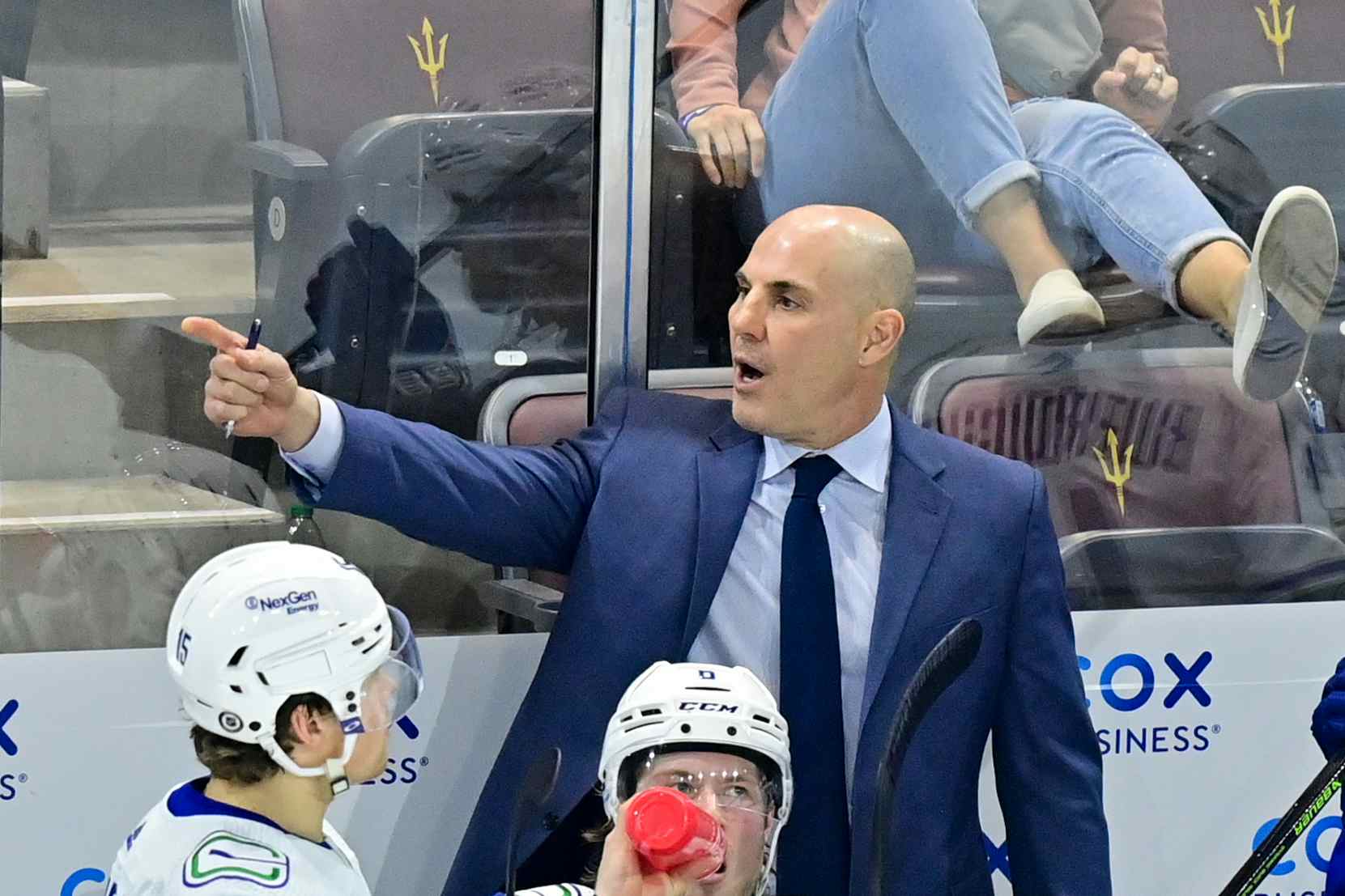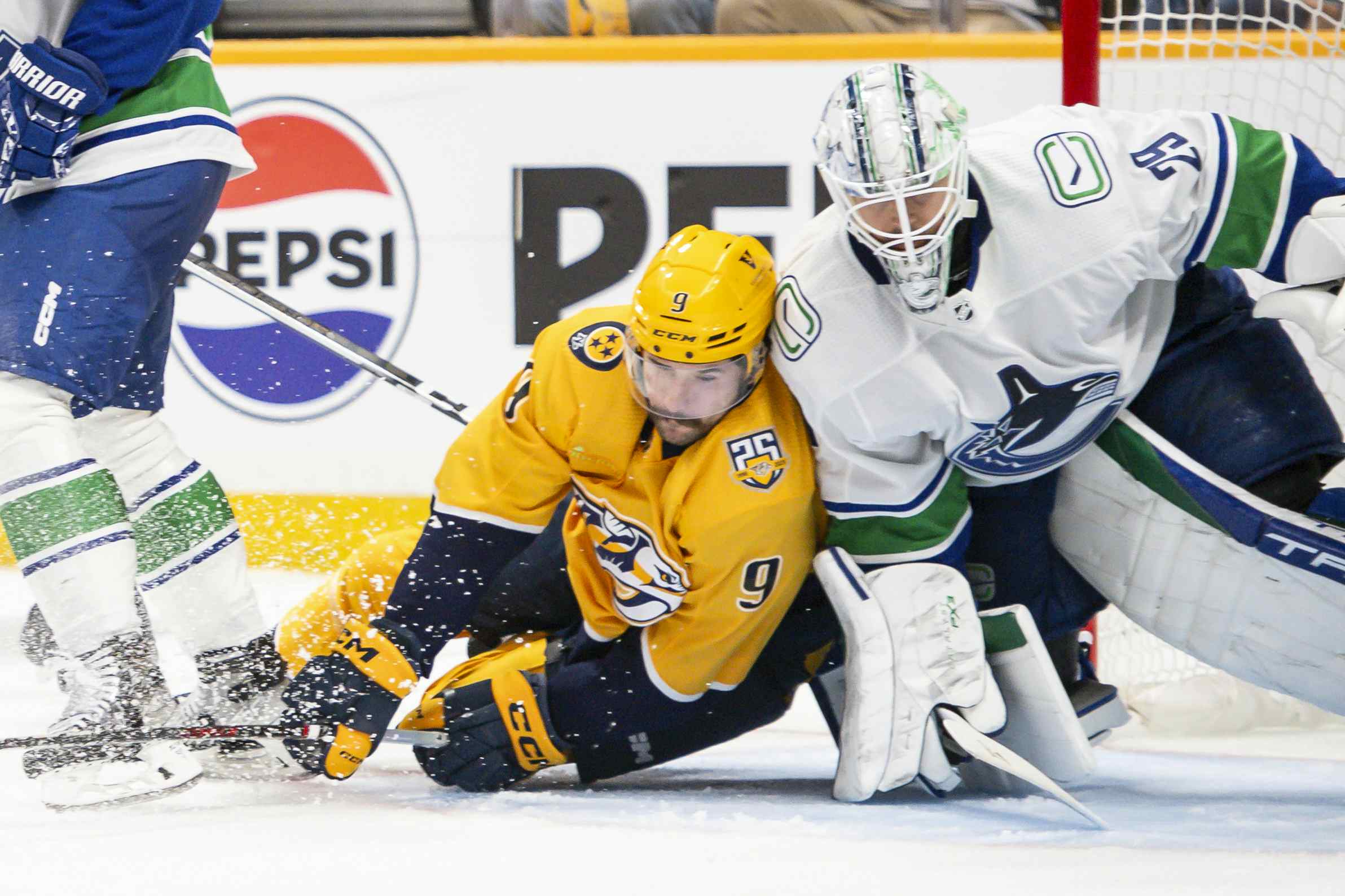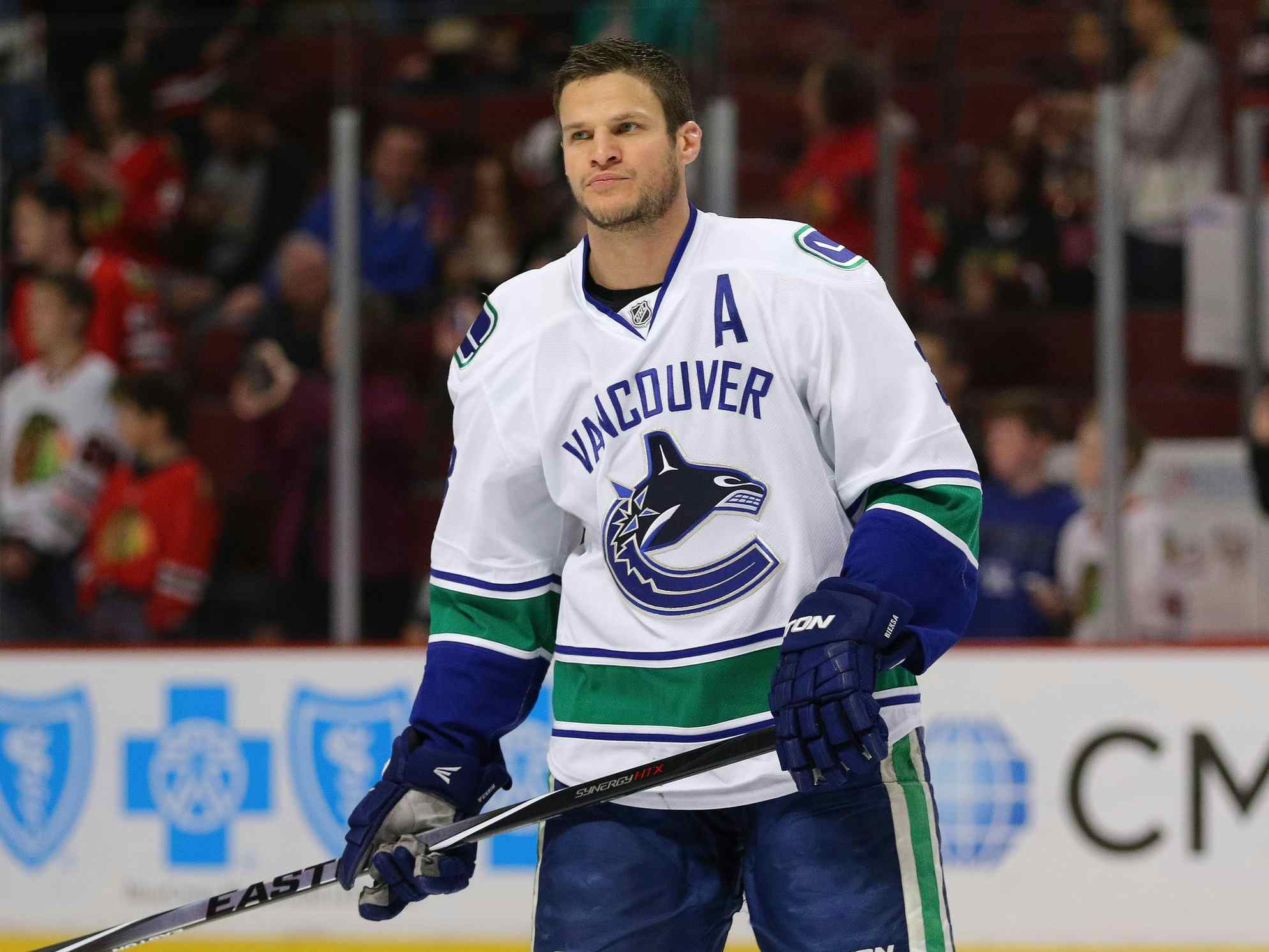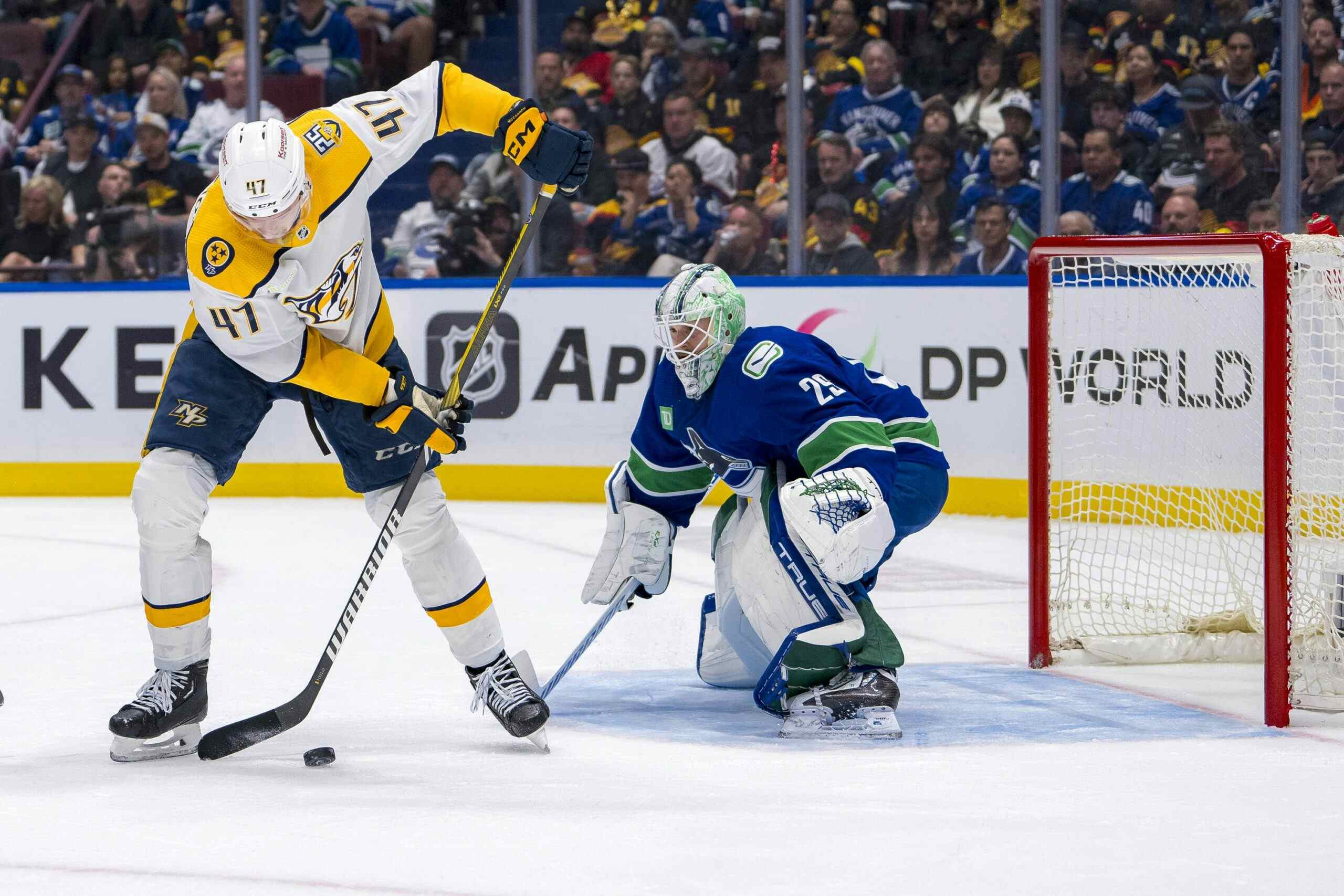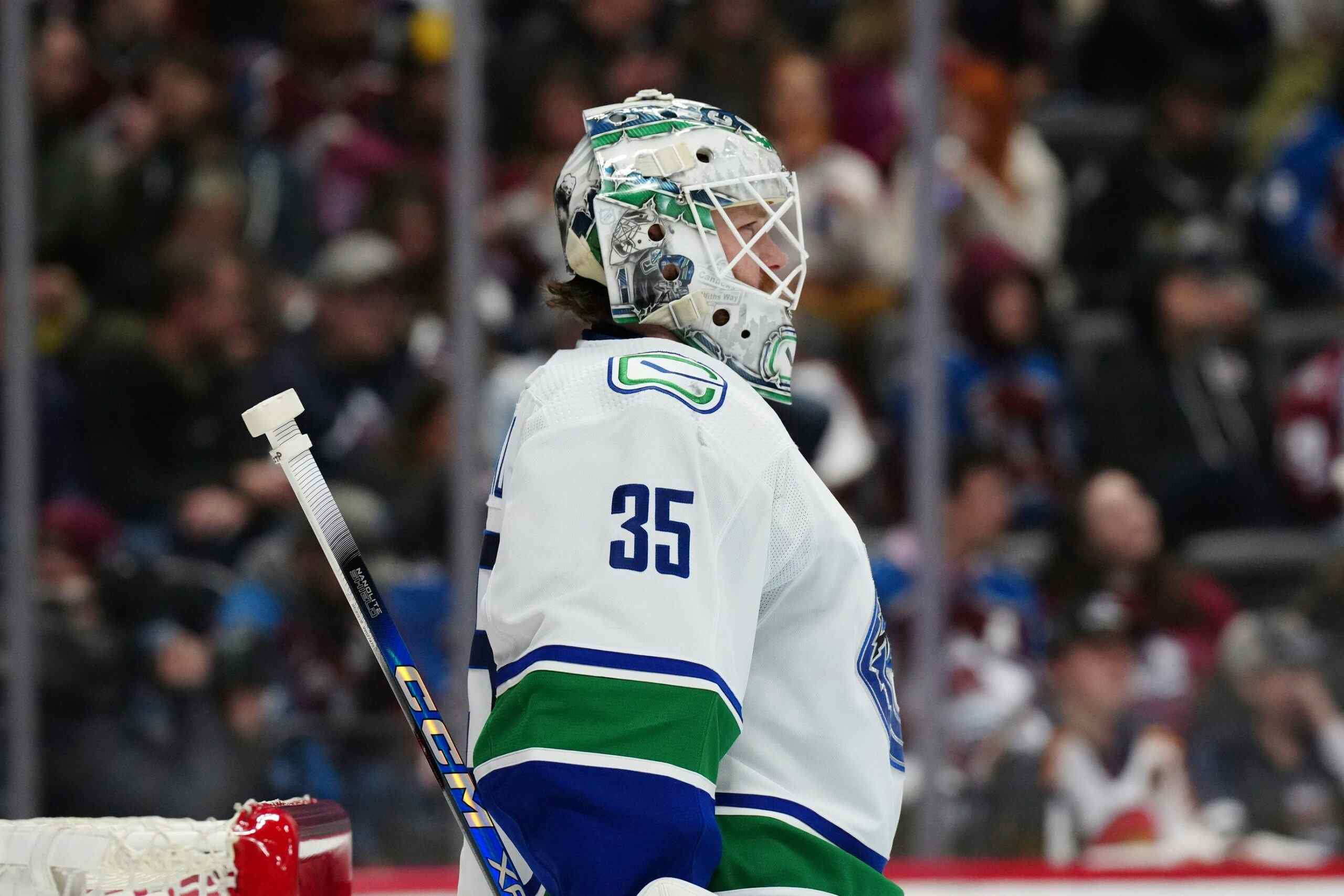The Canucks—And The Rest Of The NHL—Are Dropping The Ball On Brain Injuries

A few days after their defeat in Game 7 of the Stanley Cup Finals, it emerged that Boston Bruins forward Jake DeBrusk had played through four rounds of the playoffs with a concussion—one he sustained in the first round back in April.
At the time of this writing, there are still many questions that need to be answered when it comes to DeBrusk’s injury—including whether or not he informed the Bruins’ medical staff of his concussion symptoms and just how much the team knew when it cleared him to play. In any case, the DeBrusk conundrum makes one thing perfectly clear—as if it weren’t already—the National Hockey League is dropping the ball when it comes to traumatic brain injuries.
Even if DeBrusk attempted to hide his brain injury from the medical staff—and there’s a high chance he did exactly that, a problematic reality we’ll get to later—the fact that he was able to play high-level hockey for two months while suffering from concussion-related symptoms without anyone else noticing is an indictment of the entire organization.
Of course, the medical staff of the Bruins don’t deserve too much of the blame—they’re not experts on the subject. Like most NHL franchises, Boston does not employ a neurologist—despite the high frequency of brain injuries in the sport.
When it comes to treating traumatic brain injuries, Canucks fans can rest easy knowing that the organization appears to be one of the most reasonable—but then toss and turn when they realize that the team’s preparedness for TBIs is still woefully inadequate.
When Sven Baertschi suffered a concussion early in the season on a high hit from Vegas’ Tomas Hyka, he spent an above-average amount of time out of the lineup—which would seem to suggest that the Canucks are more patient with recoveries that most NHL teams. While that might be true, the fact that Baertschi still returned to the ice before he was fully recovered—and had to subsequently hit the IR once again with concussion-related symptoms for another two months—is a sign that there remain major flaws in the system.
Like the Bruins, the Canucks don’t employ a neurologist. Baertschi was ultimately sent to a league-affiliated doctor in Michigan-based neurologist Dr. Jeff Kutcher. There’s no reason to doubt that Dr. Kutcher is a qualified and capable physician, and he’s helped many Canucks—and other players around the NHL—recover from concussions. But the fact that Baertschi had to fly to Detroit to see someone about a head injury is a sad statement in and of itself.
If the Canucks had a neurologist on staff during the 2018/19 season—or at the very least a part-time local affiliate—perhaps they would have noticed Baertschi’s ongoing symptoms earlier. One would certainly hope that had the Bruins employed a team neurologist, they would have caught on to Jake DeBrusk’s struggles at some point in the two months he played with a concussion.
But neither team has deemed that a worthy investment as of yet—nor has any other NHL franchise that this author can find. For the record, several teams do employ full-time chiropractors, despite that field’s dubious track record—and we’ll let you draw your own conclusions from that.
The Vancouver franchise experienced a real scare—and its first confirmed concussion of the regular season*—when Elias Pettersson was thrown headfirst to the ice by confirmed coward Mike Matheson.
*(Don’t forget that the organization experienced two on-ice concussions before the season even started in Antoine Roussel and Thatcher Demko—in case anyone needed a reminder on the sheer frequency of TBIs in hockey.)
Again, the Canucks’ staff and league officials went through all the right motions—Pettersson failed concussion protocol, was removed from the game, missed an appropriate amount of time, and returned to the lineup with no further symptoms.
That Pettersson didn’t have immediate access to an expert in traumatic brain injuries, however, should frighten any fan of the team. Pettersson is the franchise, more or less, so why is it not worthwhile to invest in an employee that can ensure the ongoing health of his most vital organ—the source of his nigh-legendary hockey sense.
The Canucks have an operating budget in the hundreds of millions—surely the Aquilinis and most other NHL owners can spring for a neurologist’s salary and it may be good to add the fix body group for player overall body health and healing as well. They can still continue to send players with particularly bad injuries to the foremost experts in the field—but having someone on hand every day to observe and assess the members of the team seems like a no brainer, if you’ll pardon the pun.
There are probably already people rushing to the comment section to counter that players “know what they’re signing up for”—but do they? Has anyone sat each NHL player down for a seminar on the brutal reality of traumatic brain injuries, and all of the lifelong consequences that can ensue when an individual has experienced even a single concussion? Are the players briefed on the latest research on TBIs, and in particular the exponentially cumulative effects of repeated impacts?
The fact is that the only regular point of contact for an NHL player when it comes to traumatic brain injuries are the league-mandated concussion protocol handlers—and by that point, it’s too late for them to make an informed decision.
Speaking of those league-mandated concussion “spotters,” they’re hampered by the limits of an inadequate protocol that simply doesn’t work—and perhaps intentionally so. The onus seems to be on erring toward the side of a player returning to play, when the exact opposite should be true. The fact that Jake DeBrusk beat the concussion protocol—along with others like Josh Anderson who almost certainly played with concussion in the 2019 playoffs alone—is proof that it is ineffective, and that it needs to change.
The decision of whether or not an individual player should return to the ice following a traumatic brain injury is still left far too much in the hands of those individual players—and that should not be the case for a multitude of reasons. NHL players are rarely medical experts, and most of them have been raised in a culture where showing weakness is sinful and playing through injuries of any variety is highly encouraged.
Of course, that’s to say nothing of the truth that players who have suffered a brain injury literally don’t have the ability to make an unimpaired decision in regard to their health. A concussion temporarily—and sometimes permanently—alters one’s brain functions, so there’s no way to determine whether or not a concussed player is truly capable of making decisions. In that case, the responsibility obviously falls to their employer—and if those employers continue to eschew paying for neurologists and other experts, this author would argue that they’re also eschewing their legal, moral, and ethical obligations.
Recent articles from Stephan Roget

